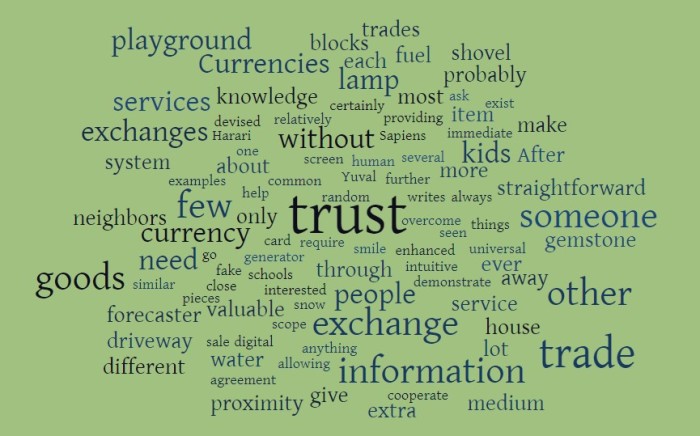Something I have noticed in my own life recently is that I am less patient and less personable with random strangers in stores. My wife and I do most of our grocery shopping on the weekends, but typically each week we have a meal planned that will turn out much better if I pick up a single ingredient the day we cook that meal rather than four or five days ahead of time during our weekend shopping. This means that usually at least once a week (more if I forgot an important item) I am running to the store after work. During these trips I’m usually in a little hurry to pick up what I need, get through the afternoon rush hour traffic quickly, and make my way through the store and everyone else who is at the store after work to get home and start cooking. I know what I want at the store, where it is in the store, and I’m not really interested in chatting with a random person who I may never see again about the weather, local sports, or some peculiarity of the grocery store. Sometimes I feel bad about it, but I just don’t feel like engaging in personal chit-chat with the grocery store employees or other shoppers. I’m simply on a cold and heartless shopping mission.
My story reflects one of the limitations of money and markets. It enables trust between people and helps organize and order our lives, but it doesn’t really build community or relationships between people. This heartless impartiality of money is a fair critique and it is one of two primary critiques that Yuval Noah Harari presents against money in his book Sapiens. Harari isn’t denouncing money, but he is demonstrating that money and economics are an insufficient explanation for human global expansion and dominance. Humans live as a globally connected species, forming relationships and connections with people from Alaska to Japan to South Africa to England and back again. Money and modern economies helped us forge this global path, but there are things within the human experience that lie beyond the reach of money and the markets that currencies enable. To explain how we got to where we are today, we have to consider economics, but also look beyond money.
“Human communities and families,” Harari writes, “have always been based on beliefs in priceless things, such as honor, loyalty, morality, and love. These things lie outside the domain of the market.” There are certain things we cannot buy and sell, or at least if we do, we are aware that they are not exactly genuine. Purchasing honor, love, or loyalty is more like a quid pro quo rental agreement. I provide you with certain financial incentives and you signal a certain amount of honor, love, or loyalty back toward me. Like modern college football coaches, as soon as a better financial opportunity comes along, all the rhetoric around such values is out the window and all those values are instantly transferred to someone else. Humans don’t cooperate on large scales and build massive societies and institutions simply because someone payed a lot of people to do so. Something more intangible to human existence is necessary.
Markets and money don’t seem to be able to reach those intangibles. Money fosters cooperation and trust between people, but doesn’t necessarily get people to connect and relate to one an other or feel any sense of mutual respect and geniality between one another. My grocery store example demonstrates this. The store trusts that my plastic card will transfer sufficient digital numbers to the store in exchange for the steak that I am taking with me. But I don’t have any real loyalty or good will toward the store and it’s employees. Harari continues, “for although money builds universal trust between strangers, this trust is invested not in humans, communities, or sacred values, but in the money itself and in the impersonal systems that back it. We do not trust the stranger, or the next-door neighbor, we trust the coin they hold. If they run out of coins, we run out of trust.”
Money can break down barriers between groups of people. It can facility trade, cultural sharing, knowledge spread, and tolerance. But it isn’t enough for humans to be a globally peaceful and cooperative species. Money is off limits in some domains, as there are certain things that lie outside the realm of markets. Money doesn’t build meaningful relationships between people in a way that forms long lasting and deep trust and engagement between people. It seems to have been necessary for human global dominance, but insufficient to explain exactly how we have arrived at the modern world we inhabit today.



